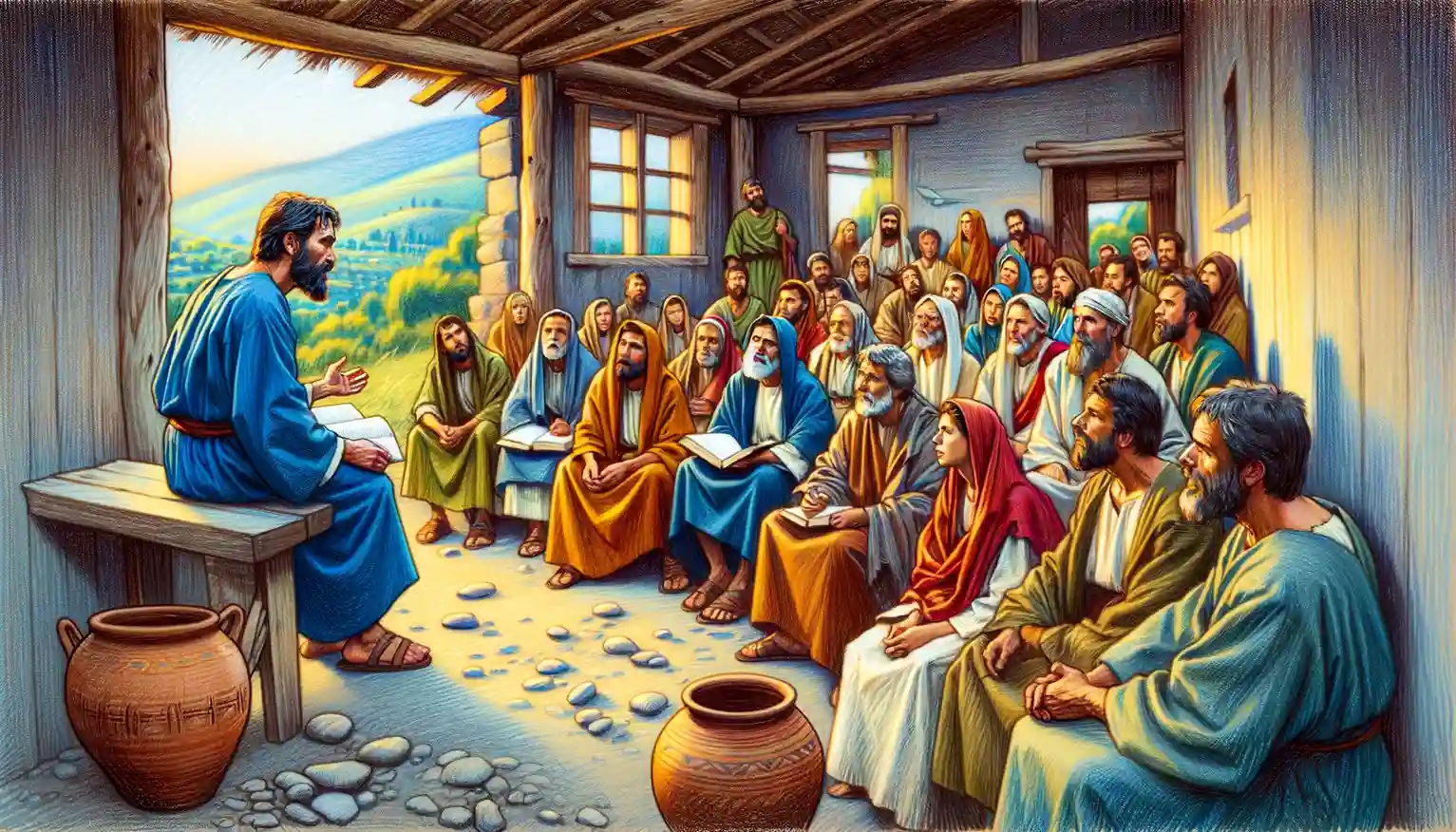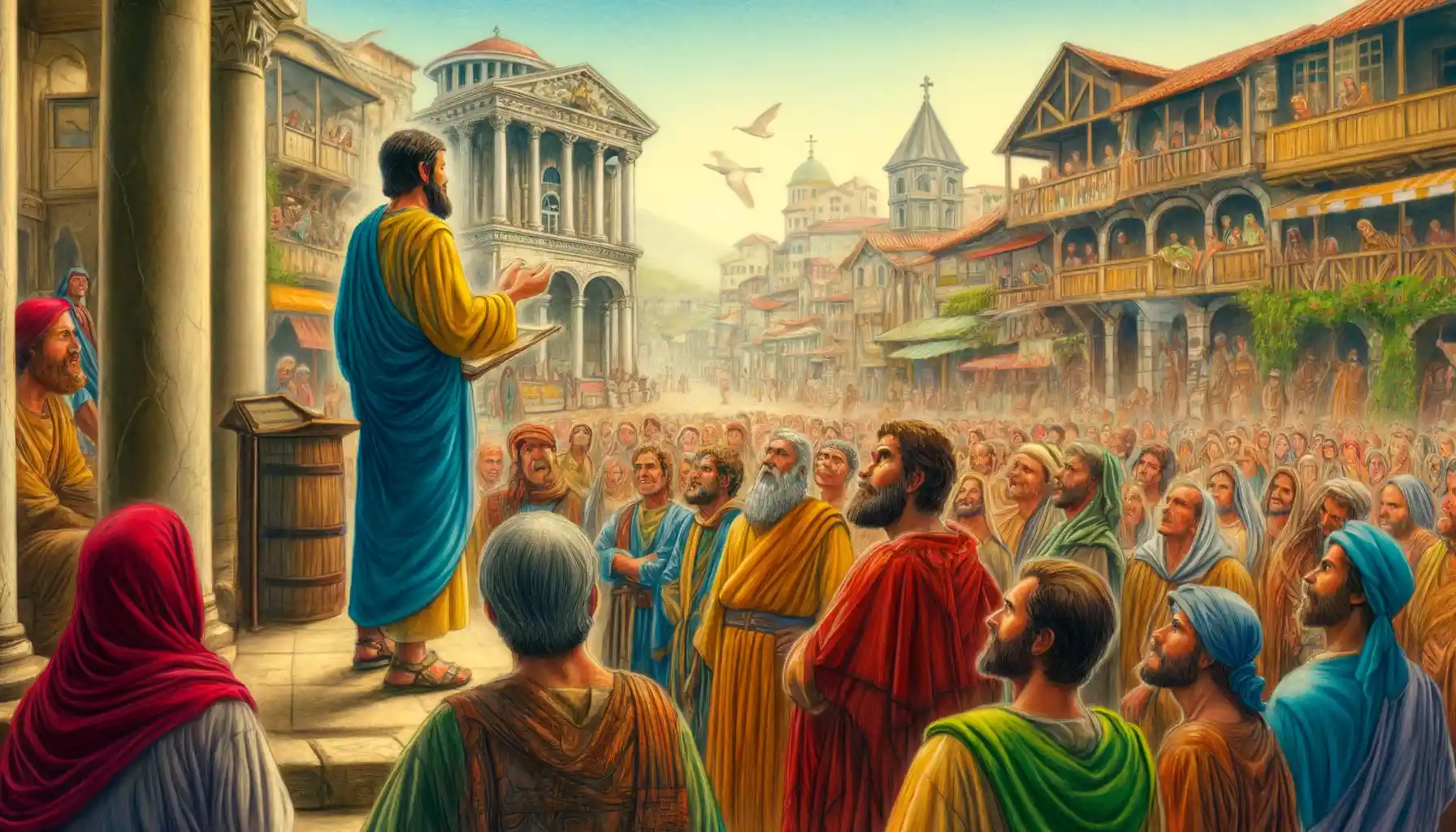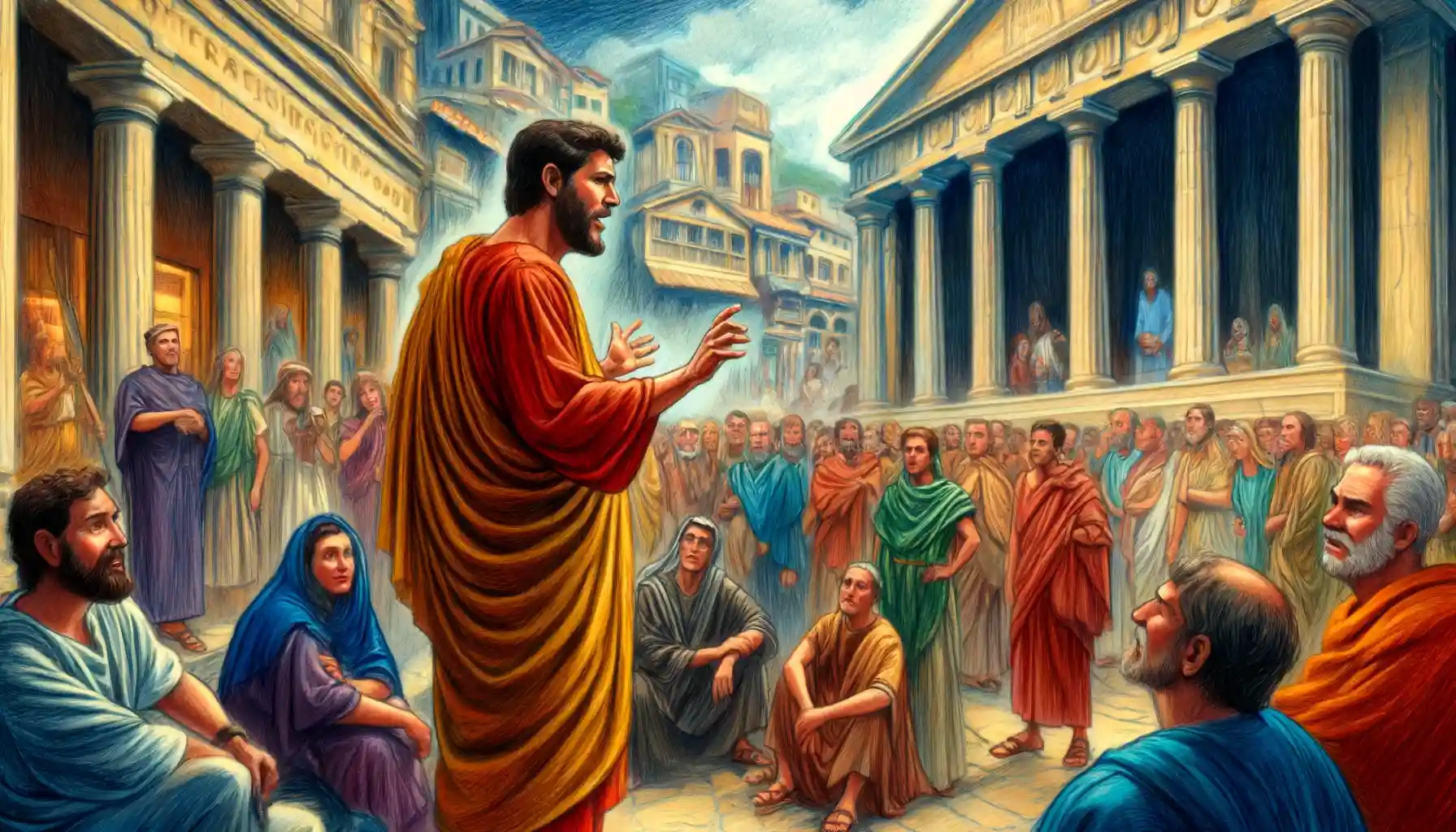The Battle of Armageddon in Revelation 16:16 is a focal point in eschatological prophecy, symbolizing the climactic end of history where divine justice prevails over the forces of evil.
The Thessalonians, addressed in the New Testament through First and Second Thessalonians, were an early Christian community in Macedonia’s city of Thessalonica, facing persecution and doctrinal challenges while exhibiting remarkable faith and resilience under the apostolic guidance of Paul.
The Parable of the Ten Virgins in Matthew 25:1-13 serves as a compelling allegorical warning about the necessity of spiritual preparedness and vigilance, illustrating through the contrasting actions of wise and foolish virgins the critical importance of maintaining an active and sustained faith in readiness for the unpredicted timing of Christ’s Second Coming.
The Parable of the Weeds, as told by Jesus in Matthew 13:24-30, illustrates the coexistence of good and evil in the world and underscores the divine wisdom in allowing both to grow until the end of the age, when a final, just separation will occur.
he Book of Revelation unveils the culmination of human history and the ultimate victory of God and His Kingdom, depicting vivid and symbolic visions of cosmic conflict, divine judgment, and the glorious consummation of God’s redemptive plan, while offering hope and encouragement to believers facing persecution, reminding them of the sovereignty of God and the promise of ultimate triumph over evil.
The Book of Jude warns against false teachers who distort the truth and lead believers astray, while encouraging believers to contend earnestly for the faith, to build themselves up in their most holy faith, and to remain steadfast in God’s love and mercy, emphasizing the importance of doctrinal integrity and spiritual vigilance in the face of deception.
The Book of 2 Peter warns against false teachers and emphasizes the importance of spiritual growth, doctrinal integrity, and preparedness for the coming judgment, urging believers to stand firm in their faith and to grow in the grace and knowledge of Jesus Christ.
The Book of 2 Thessalonians offers further clarification on eschatological matters, encouragement for believers to stand firm amidst persecution, and practical instructions for orderly Christian living within the context of Paul’s pastoral care for the Thessalonian church.
The Book of 1 Thessalonians provides early Christians with practical guidance for holy living, reassurance concerning Christ’s return, and encouragement to persevere in faith amidst persecution.
The Book of 1 Corinthians remains a vital text for understanding early Christian life and the practical and theological challenges faced by emerging Christian communities.










